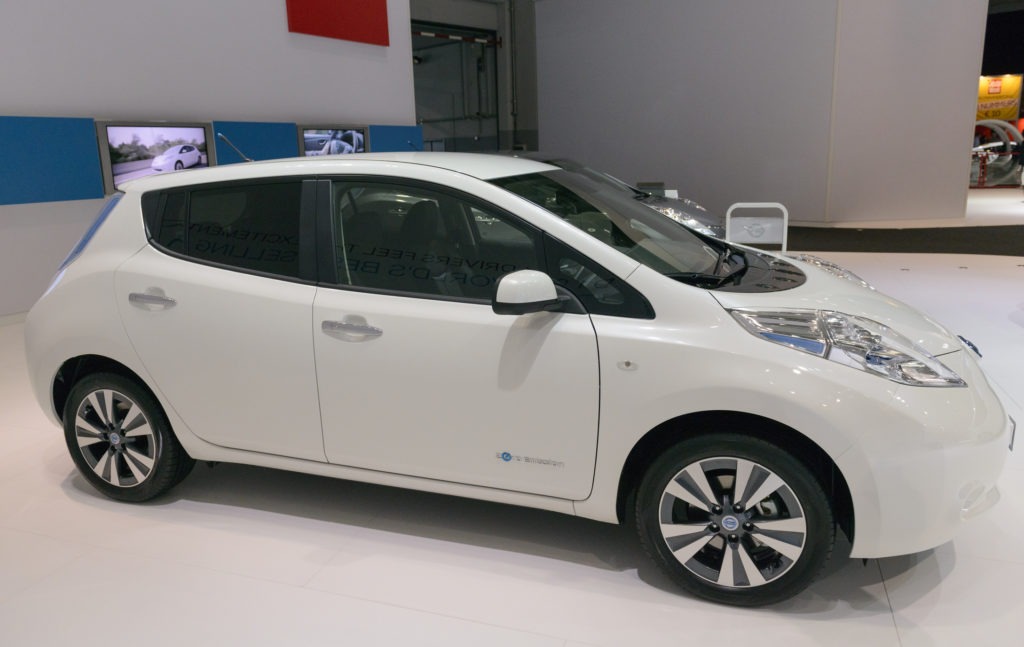Nissan exec says EV owners will never go back to ICEs
08 June 2017

08 June 2017
The head of Nissan’s zero-emission vehicle and battery business has said customer feedback indicates that EV-converts are permanently converted and will never go back to solely internal combustion engine (ICE)-powered cars. Therefore movement in the market away from combustion engines will only ever be one-way, with hybrid and electric car users abandoning the 20th century technology for life.
Daniele Schillaci, who, in addition, is also Nissan’s vice-president of sales and marketing, says that in areas with strong EV incentives (or ICE disincentives), such as Norway and California which currently make up the areas with the highest penetrations of EVs, it is not the legislation alone that has resulted in this shift towards EVs. He said to Automotive News that EV uptake is driven by customer satisfaction, adding: ′If a new technology is only for legislative compliance and does not offer any clear benefit for the customer, it will probably fail.’
His feedback shows people are permanently converted due to a genuine love for electric cars.
He revealed from feedback received from Nissan Leaf customers in California: ′I saw true customer engagement. EVs make their driving more fun while benefitting the environment. It’s a win-win combination that creates strong consumer satisfaction.’
However, while Toyota has managed to convert the majority of its customers to hybrids, it remains to be seen whether this trend continues with plug-in hybrids and all-electric vehicles when the market moves from mostly the ecologically conscious into the mainstream.
Range anxiety is unlikely to result in a customer switching back, since EV owners are well aware at purchase that long distance travel is impractical, and plan accordingly for the few journeys per year when such travel is required, such as using a hire car. Once their habits are changed, their habits remain changed and they see no reason to switch back. Furthermore, many have invested in home EV charging units, and so want to make the most of their investment.
Nevertheless, Schillaci says that in order to drive this one-way exodus forwards, to really establish EVs as a central part of the market, incentives will need to be maintained to help customers with the higher ticket price for EVs, and that uptake will only grow appreciably in areas with adequate infrastructure. Therefore, the main concern for OEMs is convincing first-purchase EV owners, rather than holding on to them.
Schillaci also revealed that while the feedback from Californian Leaf owners showed ′they love the idea of driving an emissions-free vehicle,’ another key factor was that ′they love the Leaf’s [high] acceleration.’ This is a particular benefit in cities, where electric vehicles are expected first to thrive, since the vehicles are constantly stopping and starting at traffic lights. Therefore, electric vehicles can save a great deal of time on inner city journeys, by allowing EV owners to spend a greater proportion of time closer to the speed limit.
Nissan was one of the first to see the benefits of electric vehicles, and was rewarded with its Leaf, launched in 2010, continuing to be the cumulative best-selling EV of all time. Built in Sunderland in the UK, Nissan plans to launch the second-generation Leaf ′late this year’, according to Schillaci. Nissan is also working on a second major EV launch, which their global director of hybrid technology revealed would launch in 2020, have a long range and also be a similar size to the Leaf. While unclear whether they are related, Schillaci also heavily hinted that with SUVs and crossovers like their best-selling Qashqai being in their DNA, an EV in this rapidly growing segment is in development.
The insight behind the news
Never miss another story – sign up to receive your complimentary Autovista Group Daily Brief. This timely and incisive daily briefing covering automotive news and insights on the issues affecting your business is delivered direct to your inbox.